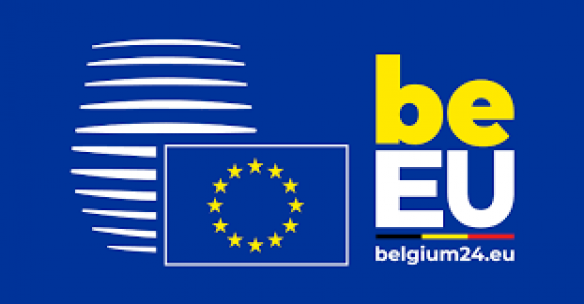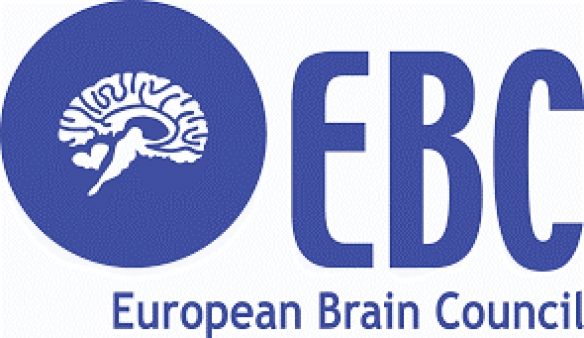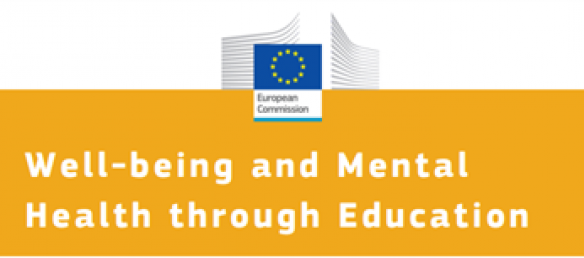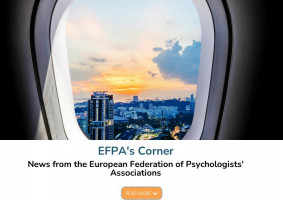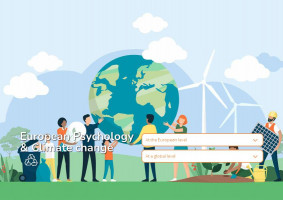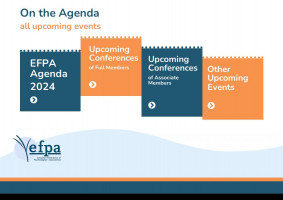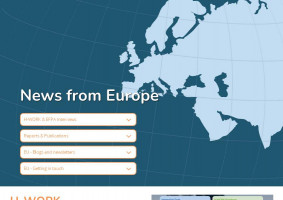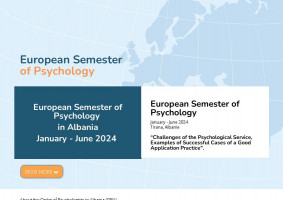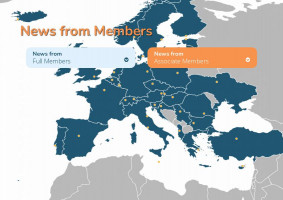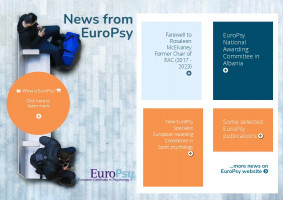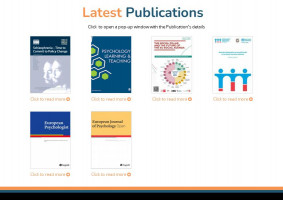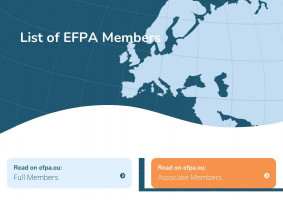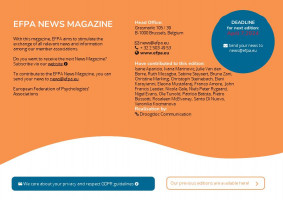EU Belgian Presidency Conference on Mental Health and Work
On 30-31 January 2024 the Belgian Presidency of the EU hosted the Conference on Mental Health and Work. EFPA welcomes this focus on an important aspect of wellbeing, highlighted in point 4 of EFPA's 7 points around mental health.
-
EFPA provides feedback on EBC's Rethinking Schizophrenia Policy Report
January 2024
The European Brain Council's Rethinking Schizophrenia Policy Report considers feedback from various stakeholders with expertise in the area of schizophrenia, including the prominent inclusion of the voices of those with lived experience.
EFPA was happy to provide expert feedback, endorsing a psychosocial approach consistent with the emphasis of the European Commission's Comprehensive Approach to Mental Health policy on access to early supports, quality care and integration into Society.

Following EFPA's participation in the WHO pan-European Mental Health Coalition from 2021 to date, EFPA has renewed commitment to collaborating with WHO Europe and the other stakeholders involved in the Coalition for the 2023-2025 period.
Read more about the Coalition's priorities and EFPA alignment on EFPA website Newsroom
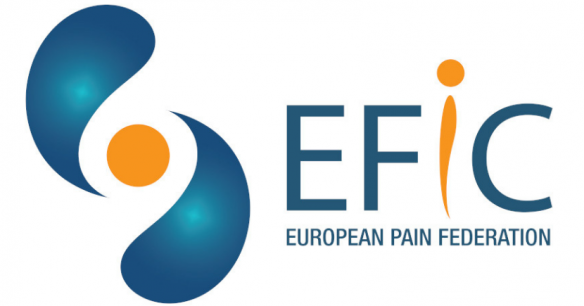
-
EFPA participates in European Pain Federation research
January 2024
Through December 2023 to January 2024, EFPA supported two initiatives by the European Pain Federation (EFIC).The first, 'Priorities for Pain Research in Europe', is an opinion paper based on a multi-stakeholder priority setting process conducted by the Research Strategy working group of the European Pain federation (EFIC), and was reviewed by EFPA in terms of psychology's contributions to this area.
H-Work Project, funded under European Union’s Horizon 2020 research and innovation programme, has the purpose of designing, implementing, and validating effective multi-level assessment (IGLO: Individual, Group, Leader, Organization) and intervention toolkits, evaluating individual and organisational outcomes of the adopted measures and provide further innovative products and services. The aim is to effectively promote mental health, along with policy recommendations (Policy Briefs) for employers, occupational health professionals and policy makers.
The strategy was to translate the aim into practice in three distinct phases including Preparation, Implementation, and Exploitation.
Preparation consisted of protocol elaboration for H-Work toolkits for assessment, intervention and evaluation (HAT, HIT, HET); Implementation focused on tests and validation of the H-WORK Toolkits through their application in the intervention sites (Public organisations and SMEs involved) during a 18-months period ensuring a longitudinal approach; and finally, the Exploitation promoted the H-WORK Toolkits and bring the H-WORK Innovation Platform to the market, for policy makers, CEOs, managers, health professionals, insurance companies and researchers.
The final event at the University Bologna included the description of the project, and statistics about the scope of the project; a showcase of the H-WORK Interactive Tool; a fruitful panel discussion on lessons of H-WORK partners; Keynotes by Frank Krause on Change, and Sarah Copsey (EU OSHA) on managing new challenges and opportunities of psychosocial risks at work; along with the round table on the policy briefs and their implications, turned out to be an amazing learning experience.
Pictures of the Final event of H-Work in the following album
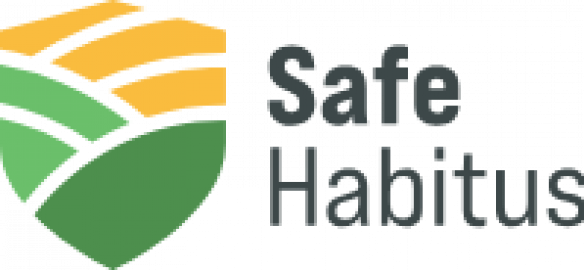
EFPA attends 1st SafeHabitus Policy Seminar “Mental health and well-being of farmers”
January 2024
The seminar “Mental health and well-being of farmers” considers the unique challenges faced by the farming community. This includes the unpredictability of their economic and environmental circumstances, the potential for spatial and occupational isolation, and ever-changing societal and policy landscapes. These challenges can contribute to increased stress and mental health issues.
More information about the initiative can be found on EFPA website Newsroom
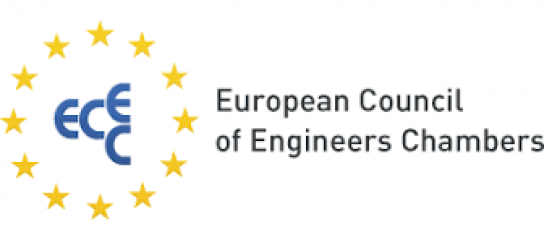
CEPLIS letter to Commissioner Kyriakides regarding Mental Health
January 2024
The European Council of the Liberal Professions (CEPLIS) recently wrote a letter to the European Commissioner responsible for Health, Stella Kyriakides, which EFPA—as a member of CEPLIS—contributed to and co-signed.
The letter addresses the importance of mental health in European policies, emphasising the need for increased funding and a move towards community-based mental healthcare. The letter also advocates for the implementation of Continuous Professional Development (CPD) in healthcare education and highlights the significance of supporting young professionals. It calls for equality of access, incorporating digital skills and telecommunication infrastructure for online treatment and learning.
Own Initiative Report on mental health - European Parliament resolution of 12 December 2023
December 2023 - EFPA welcomes the European Parliament's resolution of 12 December 2023 on mental health. The Own Initiative Report, led by MEP Sara Cerdas, follows feedback provided by a range of stakeholders including EFPA.
The document highlights a range of important topics, aligned with EFPA's 7 points of mental health advocacy, including an emphasis on community-based care, the role of digitalisation and a European Year of Mental Health.
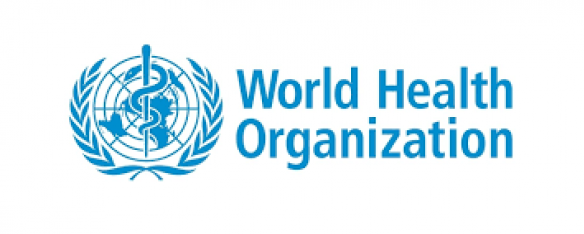
WHO Mental Health Gap Action Programme (mhGAP) guidelines
November 2023 - The World Health Organization (WHO) has released the third edition of the Mental Health Gap Action Programme (mhGAP) guidelines, providing updated recommendations for the treatment of mental health, neurological, and substance use disorders.
The guidelines aim to address the global impact of these conditions, with a focus on improving access to evidence-based interventions. The 2023 update includes new recommendations for anxiety disorders, emphasising cognitive behavioural therapy and stress management.
Read more on EFPA website Newsroom
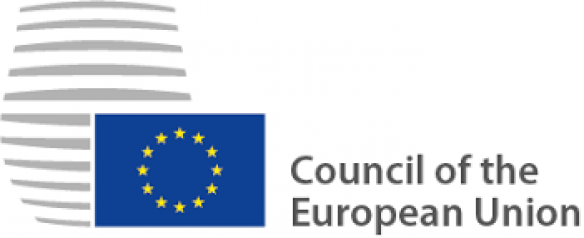
EFPA welcomes the EPSCO Council Report: "Conclusions on mental health”
November 2023
In a significant step forward for mental health policy, the Employment, Social Policy, Health and Consumer Affairs Council (EPSCO) has issued a report: "Conclusions on mental health" in which it endorses a range of important steps forward for European mental health.
The EPSCO Council brings together ministers responsible for employment, social affairs, health and consumer policy from all EU member states. Relevant European Commissioners also participate in meetings.
Factsheets on well-being and mental health in schools
September 2023
The European Commission and the Network of Experts on the Social Dimension of Education and Training have created a series of factsheets on well-being and mental health in schools.
Read more and download the factsheets on EFPA website Newsroom
Back to top
(1)_w1700_h406_1.png)
